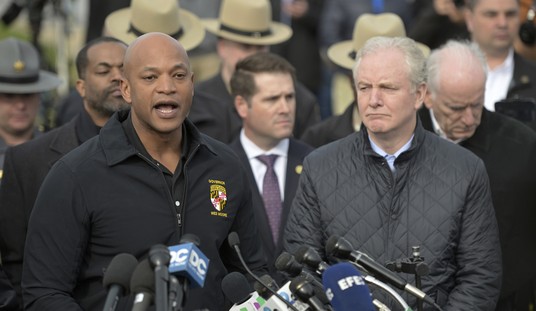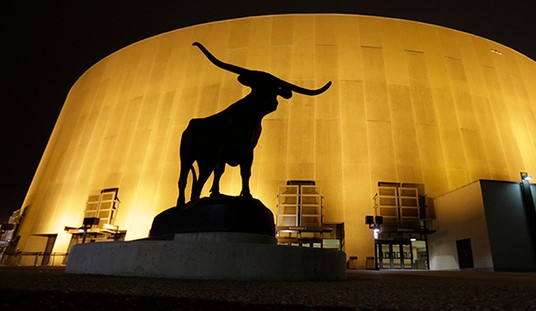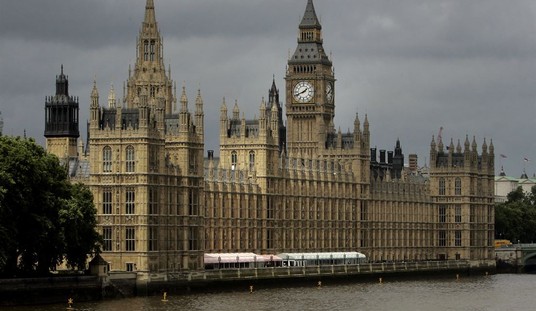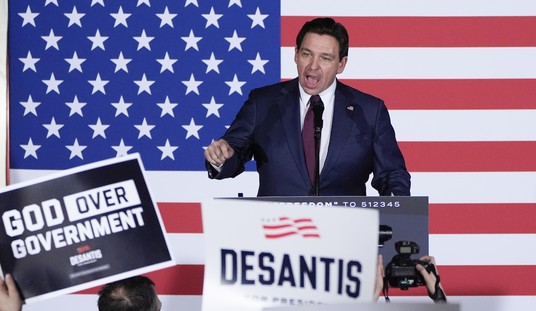Time for Germans to finally brush the dust off the succession plans for chancellor. After 13 years as Germany’s head of government and eighteen at the head of the Christian Democratic Union, Angela Merkel announced that her current four-year term would be her last. “It is time today for me to start a new chapter,” Merkel told reporters afterward:
Angela Merkel will step down as German chancellor when her mandate ends in 2021, a party source told AFP Monday, after a series of political crises and regional vote debacles rocked her fragile coalition.
Often hailed as the world’s most powerful woman and Europe’s de facto leader, a weakened Merkel has faced growing calls to spell out her succession plans after 13 years in power.
Speaking at a meeting of her centre-right Christian Democratic Union on Monday, a day after a bruising state poll in Hesse, Merkel told top brass that she planned to give up the party leadership, a role she has held for 18 years.
She said she wanted to complete her fourth stint as chancellor but stressed that it would be “her last term”, a party source told AFP.
Initially, there was some confusion as to exactly what Merkel had retired from. The Washington Post heard something a little different. According to “multiple media reports,” Merkel announced her intention to retire as the chief of the CDU. Their sources reported that she did not explicitly state that she would retire as chancellor, even though that might be implied by the action:
German Chancellor Angela Merkel said on Monday she is ready to hand over the leadership of her Christian Democratic Union (CDU) later this year, according to multiple media reports, offering the clearest indication to date that her time at the helm of Europe’s largest economy is running out.
Merkel has been CDU chairwoman since 2000 and while her departure from the party post would not automatically result in her stepping down as German chancellor, the move is an acknowledgment of her increasingly vulnerable position.
Merkel herself has said in the past that the chancellor should also be the leader of the ruling party. But according to German public radio, Merkel wants to stay on even after handing over the party leadership.
That seemed unlikely anyway, especially after recent results in local and regional elections. If Merkel wanted to win a fifth term as chancellor after 2021, she would have to re-establish her party as dominant under her leadership. The CDU expected her to say that today, too — that she would run for another term as party chair and lead the CDU in the next national election. Instead, Merkel has forced the issue of succession with almost three years to go on her fourth term, which seems more tailored to the need for the CDU to prepare a new candidate for chancellor, too.
Merkel cleared it up by going directly to the media after the CDU conference:
“It is time today for me to start a new chapter,” Merkel told reporters in Berlin.
“This fourth term is my last term as Chancellor of the Federal Republic of Germany. In the next Bundestag election in 2021, I will not run again as Chancellor. I will not run for the German Bundestag any more, and I do not want any other political office.” …
Merkel also announced on Monday that she would stand down from the chairmanship of her center-right Christian Democratic Union (CDU) party after 18 years in the post.
She said that she’s known since the summer break that she no longer wanted to be the CDU chairman and that during the party’s conference in December she will not run again for the position.
It comes at a tough time for Germany and the EU, as Reuters notes:
Party sources said Merkel’s favored successor, CDU party secretary general Annegret Kramp-Karrenbauer, had announced her candidacy for the party chair.
Party sources also said that Friedrich Merz, a former parliamentary leader of Merkel’s conservative alliance, was ready to put himself forward for the CDU chairmanship.
Merkel’s weakness at home may limit her capacity to lead in the European Union at a time when the bloc is dealing with Brexit, a budget crisis in Italy and the prospect of populist parties making gains at European parliament elections next May.
The rise of populism in Europe is directly attributable to Merkel and EU leadership. They allowed a wave of refugees from Syria and Libya to roll across the continent without considering the political and social disruption it would cause. The Syrian humanitarian disaster was arguably unavoidable, a result of a civil war which dictator Bashar al-Assad has managed to mostly win with the help of Russia and Iran. But the crisis in Libya was created by European leadership and Barack Obama when they conducted a war against Moammar Qaddafi that decapitated the leadership of Libya without forces on the ground to control the outcome. Europe and the Obama administration left a failed state on the shores of the Mediterranean and a humanitarian catastrophe in their wake.
That may well end up being the most prominent part of Merkel’s legacy. It should serve as a warning for others who stage interventions without any thought of the long-term implications or any commitment to shape the outcomes toward true liberty and security.








Join the conversation as a VIP Member